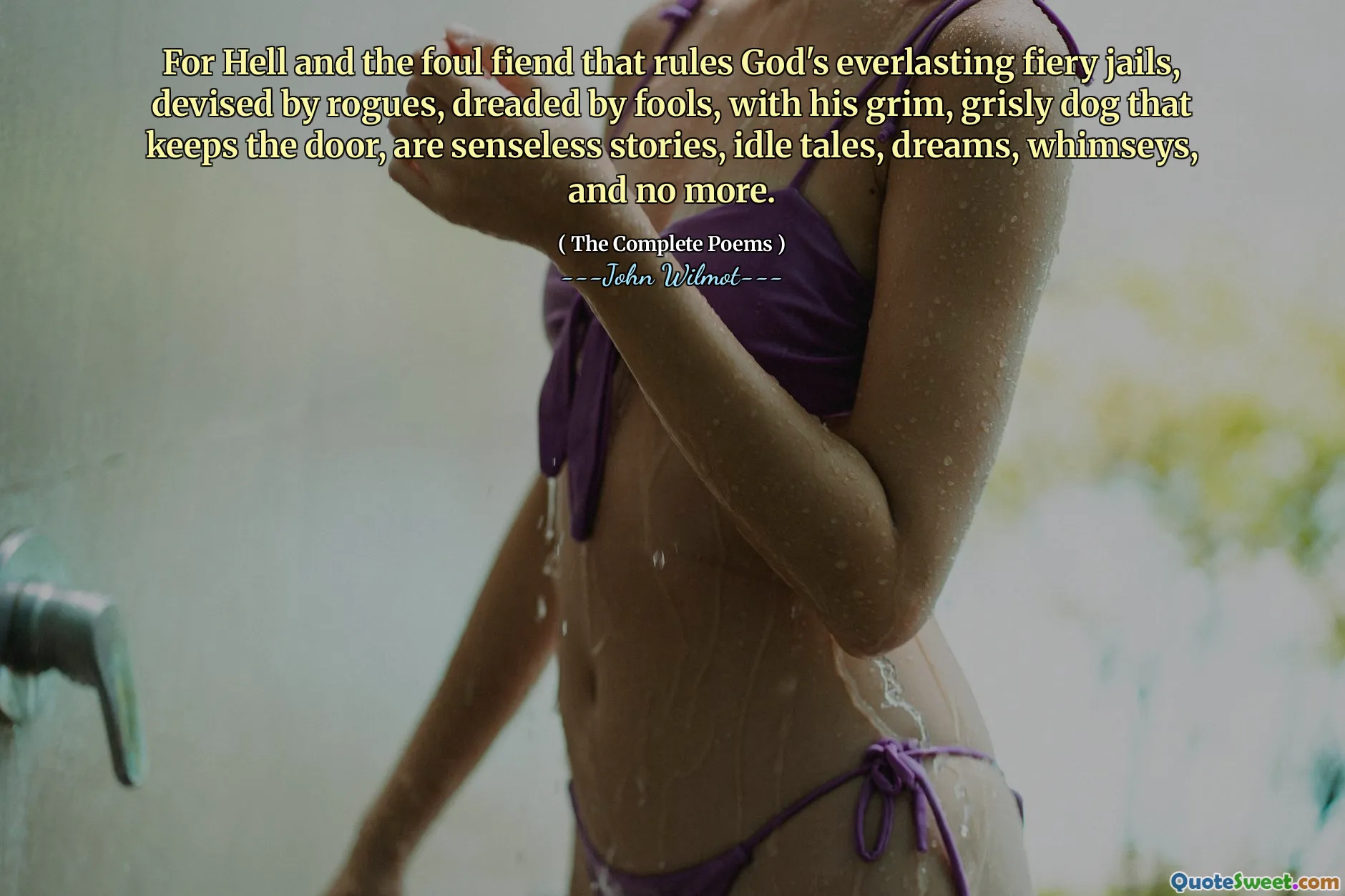
For Hell and the foul fiend that rules God's everlasting fiery jails, devised by rogues, dreaded by fools, with his grim, grisly dog that keeps the door, are senseless stories, idle tales, dreams, whimseys, and no more.
This quote challenges traditional notions of Hell, demons, and eternal punishment as literal or factual realities. It portrays these concepts—Hell itself, the fiend ruling over it, and the monstrous watchdog guarding its entrance—as fabrications born out of deception by 'rogues' and irrational fear held by 'fools.' The language employed evokes a cynical critique of religious or moral dogma that uses fear to control or influence behavior. By labeling these vivid images of torment and eternal damnation as "senseless stories" and "idle tales," the author invites the reader to reconsider the foundation of such beliefs and the purposes they serve. This perspective can be interpreted as a form of skepticism regarding the use of fear in religious narratives to assert authority and instill obedience. The quote's tone is bold and unapologetic, embracing rationalism and critical thought over superstition and fear-mongering. Furthermore, it reflects an enduring theme in philosophical and literary works that challenge the status quo and advocate for enlightenment ideals, questioning the validity of deeply ingrained myths. Thematic concerns such as the human tendency to fear the unknown, the power dynamics embedded within belief systems, and the liberation found in reason emerge strongly. Ultimately, this quote encourages readers to look beyond traditional doctrines and to scrutinize the origins and legitimacy of the stories told in the name of morality and the afterlife.







